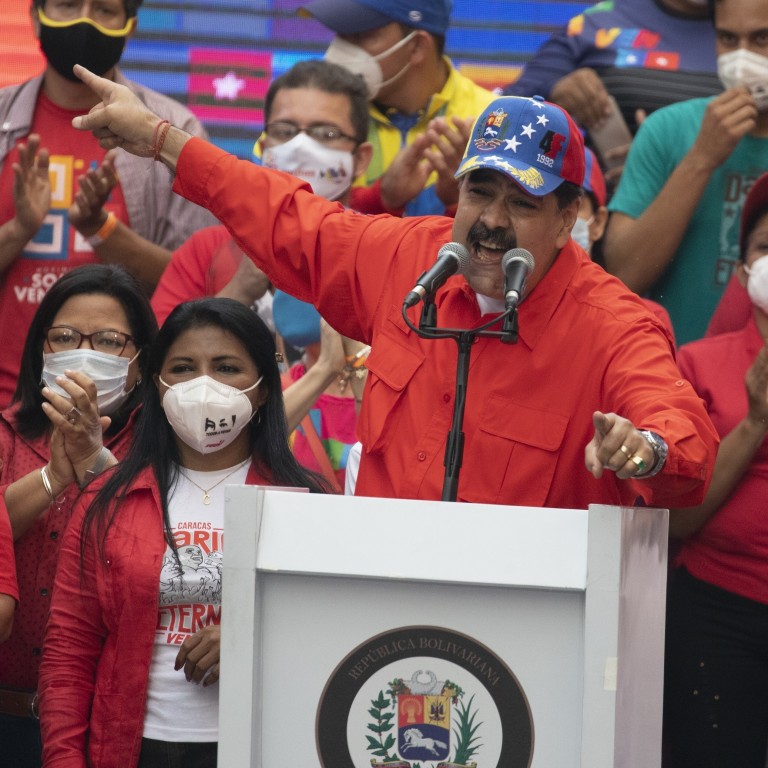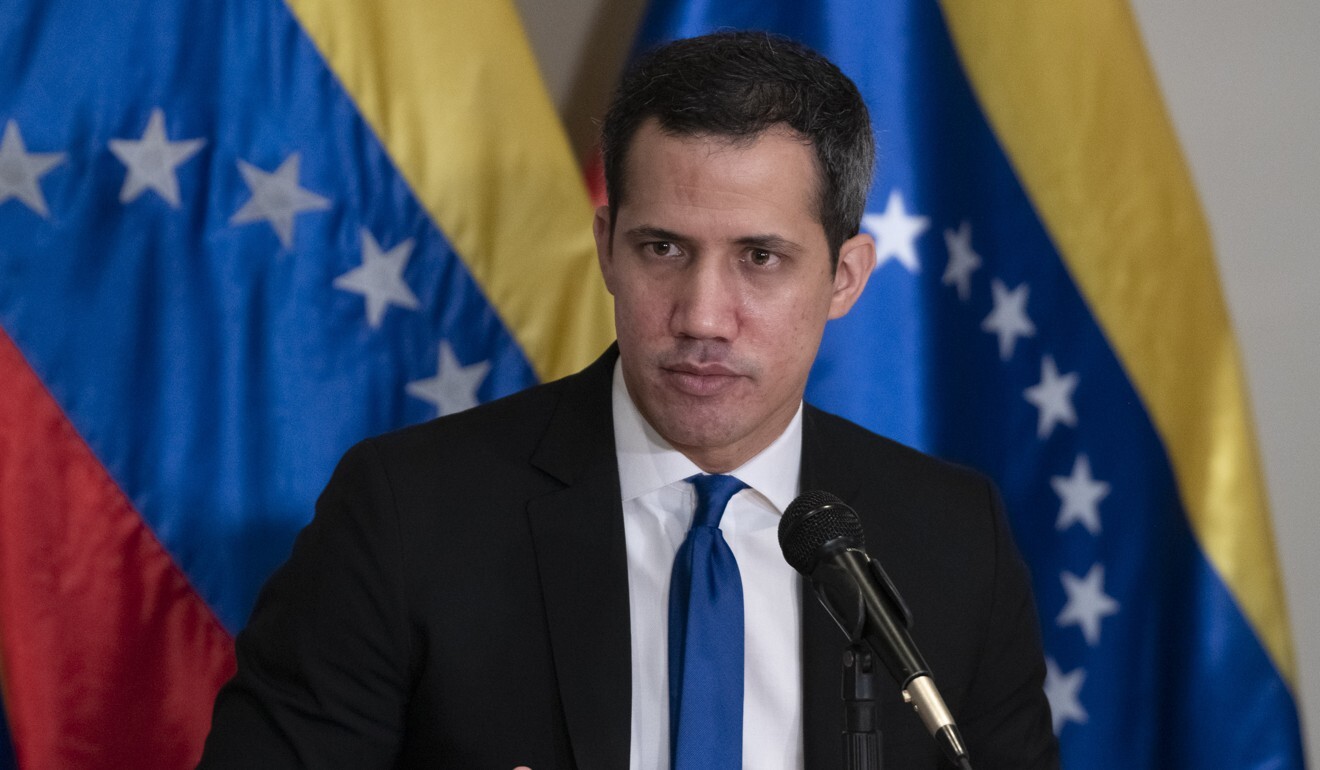
President Maduro handed total control in Venezuela after opposition boycotts election
- Venezuelans voted in legislative elections that tightened President Nicolas Maduro’s grip on power
- US-backed opposition rival Juan Guaido lead a boycott of the polls he called a fraud
President Nicolas Maduro regained control of Venezuela’s National Assembly, in a vote that was boycotted by the main opposition parties.
With no real opponents and widespread apathy, government-affiliated parties received 68 per cent of votes, the electoral council announced early Monday after counting more than 80 per cent of ballots. The almost-inevitable landslide cements Maduro’s grip on the last major institution in the country that has democratic legitimacy. The new assembly will take over on January 5.
“This is a great victory for democracy,” Maduro said on state TV at 1:45am. “The people have chosen their new lawmakers.”
Scarce crowds made their way into voting centres at schools across Caracas on Sunday morning, where masked voters were able to quickly cast their votes after having their hands sprayed with disinfectant. In the sprawling western slum of 23 de Enero, few trickled into the Manuel Palacio Fajardo school, where the late Hugo Chavez used to vote.
Opposition leader Leopoldo Lopez flees Venezuela
“I’m here because we desperately need our economy to improve,” said Carlos Aguilar, a 72-year-old retired electrician who depends on measly pension payments. “Even though the government handouts help, it’s not nearly enough. We’re trying to survive.”
Maduro’s win further weakens the position of opposition leader Juan Guaido. He’s recognised as the legitimate ruler of Venezuela by the US and dozens of its allies, but that’s based on his status as head of congress, a position he’s about to lose.
Guaido and his allies boycotted the election, citing the absence of international monitors, while a minority segment of the opposition took part.

“It’s a mistake to not participate, I don’t like to see electoral centres this empty, because if we want a change we have to vote,” said 40-year-old Dayana Rios from Palo Verde, a working-class neighbourhood near Petare, Caracas’s biggest slum. “We want a new assembly that’s committed to the needs of Venezuelans.”
Official turnout stood at 31 per cent, totalling 5.3 million voters, which compares to the opposition’s estimate of under 20 per cent and to a 76 per cent participation rate at the prior congressional vote of 2015.
The government tried to boost turnout through cash payments and food handouts. Maduro even promised to grant “special prizes” to the 100 communities with the highest participation rates.
US hits Chinese firm CEIEC with sanctions over Venezuela
Canada, Colombia, Brazil and the US were among the first to reject the election’s results, generally citing unfair conditions. Maduro’s victory will likely be greeted by his foreign allies Russia and China.
“The results announced by the illegitimate Maduro regime will not reflect the will of the Venezuelan people,” US Secretary of State Mike Pompeo wrote on Twitter.
Maduro will likely try to use control of the National Assembly to try to bypass US sanctions and attract some foreign investment, especially through oil ventures, according to ORC director Oswaldo Ramirez. The assembly has to approve such investments.
“They were the ultimate traitors, calling for a plague of sanctions on their own people,” Maduro said of the acting assembly in a press conference after casting his vote around noon. “We were patient and resisted, and today we get justice.”
Although the main opposition parties didn’t participate, some of them still appeared on the ballot. That’s because the top court – packed with Maduro loyalists – suspended and replaced the boards of those parties to hand them over to government allies in an attempt to boost the election’s appearance of legitimacy.
The economy is suffering through its seventh straight year of contraction, with food shortages and annual inflation of 6,600 per cent.
Additional reporting by Agence France-Presse

